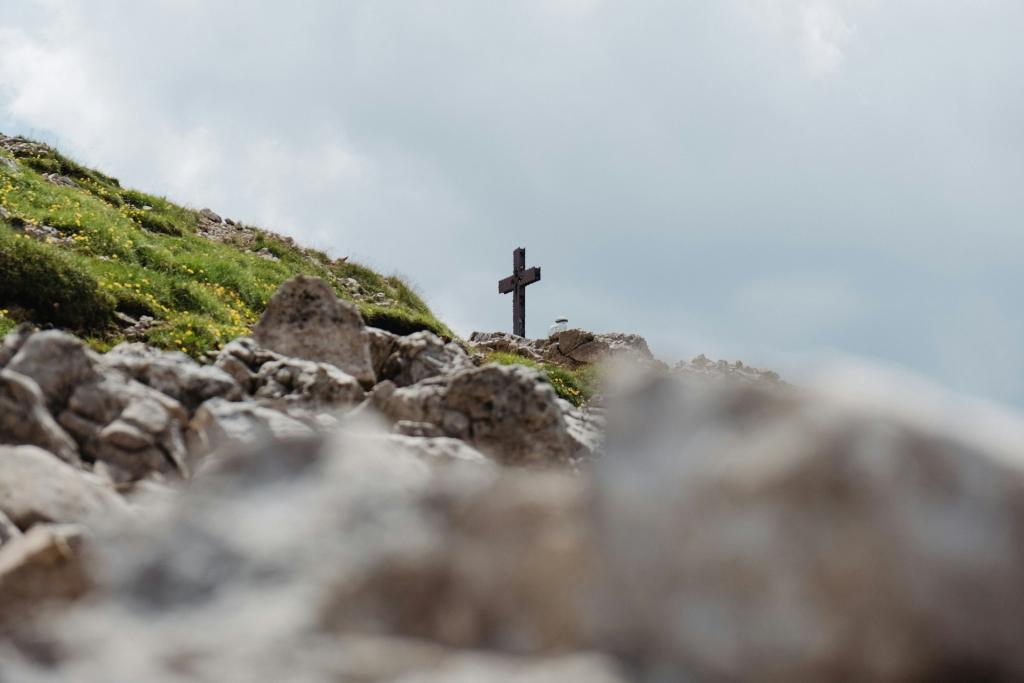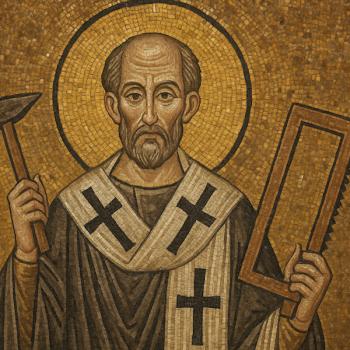
In pursuing what it means to ambitiously lead a quiet life, we find it is a costly and sacrificial way of living. It is a cost that we have to be willing to accept.
As I grew up, collecting items like Baseball cards, I often harbored dreams of stumbling upon that one card or item that could alter my financial status. However, my father consistently tempered these aspirations with the simple yet profound words, “Something is only worth what someone else is willing to pay for it.” This quote, a familiar refrain throughout my childhood, has remained a steadfast companion, serving as a guiding principle in various facets of life. It has also aided me in determining the value I wish to assign to something I desire, and what worth I want to assign to something, by considering what I am willing to pay or sacrifice for it.
This morning, as I sat contemplating life over coffee, I found myself reflecting on the myriad stresses it encompasses. In that reflection, I considered how all pursuits in life, regardless of whether one seeks abundance or contentment with less, demand sacrifice. Achieving one’s desired standard of living and goals inevitably comes with a price tag attached. Aside from the hand of fate and the grace of God, the level of life we attain may also hinge on what we are willing to invest in it, and the worth we are willing to assign it.
This reality applies equally to those of us endeavoring to embody the principles outlined in 1 Thessalonians 4:11-12. The lifestyle Paul’s timeless wisdom called the Corinthian followers of Jesus, and ultimately ourselves, too can sometimes be overly romanticized and idealized, as it offers the allure of simplicity, contentment, and a sense of self-defined worth. However, this worthy there is a cost involved in ambitiously leading a quiet life, minding our own business, and working without hands to have respectable lives that are dependent on no one else. Aside from the hand of fate and the grace of God, the achievement of this simple way of life may also hinge on what we are willing to invest in it, and the worth we are willing to assign it.
Everything of worth costs something.
Lead a quiet life will cost us something.
Leading a quiet life may cost us our reputation.
We tend to think that people will respect a life lived like 1 Thessalonians 4:11, but the truth is this way of life may give us a responsibility, but it doesn’t mean it’s understood. This is a countercultural way of living. Craig Keener points out that in a culture where this “persecuted minority in the first-century Roman Empire” were facing the challenges of “writers like Plutarch [that] advocated the involvement of wise men in the affairs of the state,” we see that “Paul asks his readers to be inconspicuous.” This is a costly way of living differently than those around you in a culture of nationalism and political polarization. In this passage, we also see the tension of living in the world and not being of it. As Leon Morris says, “In one sense the Christian must live without regard to the opinion of the world, for his standards are those of his Master, not those of the community in which he lives…But in another sense, he must always have in mind the opinion of the world, for he must not bring discredit on the faith by being careless of appearances.” We not only are called to live differently than the world, but we are called to think differently, by different values and goals which just makes us weird to many. This is a costly way of living, a way of pursuing laborious commitment and difference, but it is also a call to work towards love and not just self-achievement. Though I don’t have time to offer his exhaustive thoughts, G.K. Beale points out that this passage follows Paul’s command on what it means to love well, and as a result, it reminds us that “When love takes a high profile among God’s people, they assume a low, humble profile before one another and others.” We are giving up on some pursuits for others, for the sake of love. This verse also reminds us of the cost of love, for “love for one another may be the context from which people are propelled to go out as a light into a dark world by conducting themselves with wisdom.” Living wisely for the sake of love causes us to live with an intentionality that takes time, talent, and energy. Any missionary knows the cost of leaving one context for another, and that same cost is inherently considered by those who want to live out this passage in 1 Thessalonians 4:11-12 with obedience and commitment. 1 Thessalonians 4:11-12 calls us to a missional way of living in a context that is unfamiliar and defined by a different standard.
Leading a quiet life is the costly way of Jesus.
Leading a quiet life is costly, but it is also the way of Jesus. John Wimber points out “It took great humility for God to become a man.” But it is more than his act of incarnation and kenosis that modeled humility. The costly way of humility is also found in the way in which Jesus lived differently. It can be hard for people to walk away from the value of others. However, the inconspicuous, humble way of love we call leading a quiet life, is also the way of Jesus. Jesus modeled a way of living that was different than the ways of the world. Others who claimed to be Messiah in his day loved the crowds, prioritized power, and sought more respect from others. Yet, in Jesus we see that he often withdrew to lonely places where he could pray (Luke 5:16). He invested life in the solitary places to pray (Mark 1:35). Time and time again we learn from Jesus that the crowds were not as important as investing in the small places (Mark 10:10). He didn’t always need people to know where he was (Mark 9:30-31). I’m always struck by the accounts where Jesus, amidst the throngs of people, deliberately seeks solitude with his close companions, prioritizing rest and rejuvenation (Mark 6:31). It’s remarkable how he manages to slip away from the crowds to find moments of quietude and intimacy. As Paul says, Jesus didn’t live with his own rights in mind, but in a way that looked out for others (1 Corinthians 8:9).
We live in a world that prioritizes being self-made, striving for a place in society, and getting our opinions canonized by others. As John Wimber says in Power Points, we are living in a society that subconsciously and inherently encourages us “to be true to our feelings, make self-development our highest goal in life, and to throw off restrictions or authority that inhibit personal fulfillment.” In a world pursuing personal fulfillment, Jesus models a way of humility, a way of living that is focused on others (us) and Jesus calls all his disciples to be made into the image of Jesus, not for their own sake, but for the sake of others in the world around them. That is the same challenge from Paul. Even in Paul’s commands to lead a quiet life, it is with purpose and reason, to be focused on others as Jesus was. In the life and the ministry of Jesus, we see “the true nature of every Christian’s calling,” says John Wimber, “to pour out our lives for the salvation of the world.” We lead a quiet life, “so that your daily life may win the respect of outsiders and so that you will not be dependent on anybody” (1 Thessalonians 4:12, NIV). The way of living is a costly way of humility, mirrored after the way of Jesus.
Leading a quiet life is sacrificial living.
If the way of Jesus, the humble way of leading a quiet life is costly, it is also then a way of sacrificial living. The way of Jesus always leads to the cross. To follow Jesus, we are commanded to pick up our cross, and sacrificially live in a way that is not of this world. We know in this life that in order to obtain something, we must be prepared to relinquish something in return. Every acquisition comes with a price. The path of leading a quiet life, as advocated by Paul for followers of Jesus, comes with its own sacrifices, because it is the way of Jesus, and the way of Jesus is sacrificial living that leads to the cross, a place where the ways of this world are embattled with the ways of the Kingdom of God and ultimately defeated. In Paul’s directive to lead a quiet life and existence, the conflict between the values of the world and those of the Kingdom becomes a profound inner struggle, mirroring the scene played out on the cross. It’s the journey of discipleship to discern the world’s ways and discover the transformative power of the cross, ultimately achieving victory over worldly influences in our lives. we must recognize the triumph of prioritizing quiet living over the myriad worldly pressures, values, and expectations that need to be relinquished. We can lead a quiet life when we realize the cost of sacrificial living.
When we prioritize something, such as leading a quiet life, we inherently attribute a value to it that we are willing to expense, such as contentment and worship to God. To lead a quiet life, a sacrificial way of living, embraces a reality that “in our service to God and his people, we will be put in situations where others will look at us with disdain because our obedience and sacrifice to God does not make sense to them” (John Wimber). The ways of the Kingdom always work differently than the ways of the world, and it is in sacrifice we find greater authority and intimacy with the ways of God, and with the contented way of living Paul calls us to. As John Wimber wrote, “The greater the sacrifice, the greater the power released.” In 1 Thessalonians 4:11-12, we hear a way of living that challenges us to make a commitment to a new way of life, a sacrificial way of living like Jesus. To achieve this way of life, there are aspects we must give up to achieve it.
I have always loved how John Wimber ends his chapter on Sacrificial Living in Power Points. I leave his closing with you, may it challenge you as it has challenged me.
“The economy of the kingdom of God is quite simple. Every new step in the kingdom costs us everything we have gained to date. Every time we come to cross a new threshold, it costs us everything we now have. Every new step may cost us all the reputation and security we have accumulated up to that point. It costs us our life. A disciple is always ready to take the next step. If there is anything that characterizes Christian maturity, it is the willingness to become a beginner again for Jesus Christ. It is the willingness to put our hand in his hand and say, “I’m scared to death, but I’ll go with you. You’re the Pearl of great price.”
Be willing to accept the cost.
As I said at the start of this blog post, something is only worth what someone is willing to pay for it. This simple yet profound principle has not only guided my understanding of value and sacrifice but has also underscored the importance of prioritizing a quiet, humble existence in the face of worldly pressures. As we embrace the call to lead a quiet life, we are reminded of the sacrificial nature of following Jesus, whose humble example challenges us to prioritize others above ourselves. This sacrificial living, mirrored after the way of Jesus, leads us to the cross, where the triumph over worldly influences is ultimately realized. In Paul’s directive to lead a quiet life, we are invited to embark on a journey of discipleship, discerning the transformative power of the cross and achieving victory over the values and expectations of the world. As we navigate this path of sacrificial living, may we find greater intimacy with God and deeper authority in the Kingdom of God, knowing that every step forward demands a willingness to relinquish what we value. May we embrace the call to lead a quiet life with humility and resolve, recognizing the pearl of great price that awaits us in the footsteps of our Savior, Jesus Christ.













